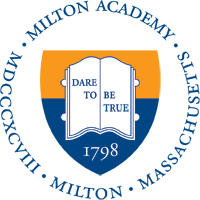Lower School Academics
Milton Academy’s Lower School is a unique and joyful place. Through daily interactions with supportive peers and impassioned teachers, our students develop uncommon expertise and confidence in their academic disciplines. They explore and initiate, collaborate and take risks together. They eagerly master and apply skills toward exciting interdisciplinary projects in every grade. Our teachers continuously and collaboratively renew our curriculum to ensure that it is rich and relevant.
Students learn in Milton’s Lower School at the natural pace of childhood. We make play a priority. We do not rush content for achievement’s sake; rather, we discover together the depth and value in science, literature, social studies, mathematics, the performing and visual arts, and physical education. Children come to a nuanced understanding of these subjects—and the connections between them. The development of interpersonal skills and self-awareness guides all of our pursuits. We practice mutual respect, learning about others and ourselves. Every day, we celebrate the many cultures and backgrounds of the children, faculty and families of Milton Academy.
Our teachers know each child well, and we work together to nurture unique talents, passions and aspirations. The Lower School—nested within the K–8 of our K–12 school—enables children to begin developing their own sense of competence, confidence and character.
What sets Milton apart?
- Curious, vivacious and capable students, who enjoy and learn from their peers
- Faculty teamwork, continually developing and refining the Lower School program, grade by grade, so that it is fresh and exciting, as well as strong in traditional areas of skill building
- A rich, interdisciplinary curriculum that combines learning in language arts, math, world cultures and science with visual and performing arts, music, robotics and woodworking
- Small class sizes, so that faculty members know each child well and develop relationships that seed students’ confidence and courage
- Detailed comments, rather than grades, describe students’ intellectual and personal growth. Absent the typical labels or grades, Lower School students take intellectual risks in the classroom and learn from mistakes.
- Experiences in public speaking, responsibility, leadership and service that promote intellectual and emotional growth
- The opportunity to grow and learn among individuals with widely divergent life stories, and to appreciate their respective cultures and backgrounds
- A robust assembly program that capitalizes on children’s interests and introduces them to new ideas and people, both from Milton and beyond
Greater Boston’s resources, nearby learning and cultural centers, local history and geography that faculty use for teaching - Learning spaces of their own where students build community, develop friendships, and celebrate accomplishments
Learn more about Kindergarten curriculum
Learn more about Grade One curriculum
Learn more about Grade Two curriculum
Learn more about Grade Three curriculum
